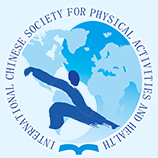Document Type
Abstract
Keywords
motor skills, intergenerational parenting, locomotor motor skills, parenting styles
Publication Date
2-2023
Abstract
The stage of 3-6 years old is a critical period for the development of children's gross motor skills, influencing their growth and development. Intergenerational parenting is a common way of family education in China. Studies have shown that the rough intergenerational parenting concept and limited energy of the elderly reduce the quality of life of the children under care (Qimeng Jiang, Nan Zhou, 2020). However, no research focused on the influence of intergenerational parenting on gross motor skills. This study aimed to explore the influence of different intergenerational parenting style on gross motor skills among children aged 3-6 years old. The participants were 62 children (25 boys and 37 girls) aged 3-6 years old from Liaoning Province. All of the participants were under intergenerational parenting. Gross motor skills were assessed using the Test of Gross Motor Development-Third Edition (TGMD-3), which includes locomotor skills and ball skills components. The intergenerational parenting status was divided into parent-dominated intergenerational parenting and grandparent-dominated intergenerational parenting according to a questionnaire (Lu Ye, 2020). The parenting style included authoritative, authoritarian and tolerant styles. The scores of three styles were determined by the grandparents-reported Chinese version of Parental Authority Questionnaire. Descriptive statistics, independent t-test and Pearson correlation were employed and the significant levels were set at 0.05. The results showed that participants had lower mean scores in both locomotor skills (Mboy = 12.58±4.42, Mgirl =13.51 ±3.03) and ball skills (Mboy = 8.46±2.9, Mgirl = 8.04±3.34) compared to the Chinese norm. There was no significant difference between parent-dominated and grandparent-dominated intergenerational parenting (M Parent-dominated =22.90±4.15, M grandparent-dominated = 20.48±4.47; t = 1.269, p = 0.209). Correlation analysis indicated a small association between the score of locomotor skills and authoritative style (r = 0.269, p < 0.05). No significant relationship was found between other parenting styles and the scores of TGMD-3. It is concluded that intergenerational parenting may negatively influence children’s gross motor development. Parent-dominated and grandparent-dominated intergenerational parenting may not have differences in children’s motor development. The authoritative parenting style of intergenerational education has certain impacts on children's gross motor skills, especially on children's locomotor skills.
DOI
https://doi.org/10.18122/ijpah.020120.boisestate
Recommended Citation
Lu, Jiachen; Zhang, Xue; and He, Yaohui
(2023)
"Influence of Intergenerational Parenting on Gross Motor Skills Among Children Aged 3-6 Years Old,"
International Journal of Physical Activity and Health: Vol. 2:
Iss.
1, Article 20.
DOI: https://doi.org/10.18122/ijpah.020120.boisestate
Available at:
https://scholarworks.boisestate.edu/ijpah/vol2/iss1/20
Included in
Exercise Science Commons, Health and Physical Education Commons, Public Health Commons, Sports Studies Commons


